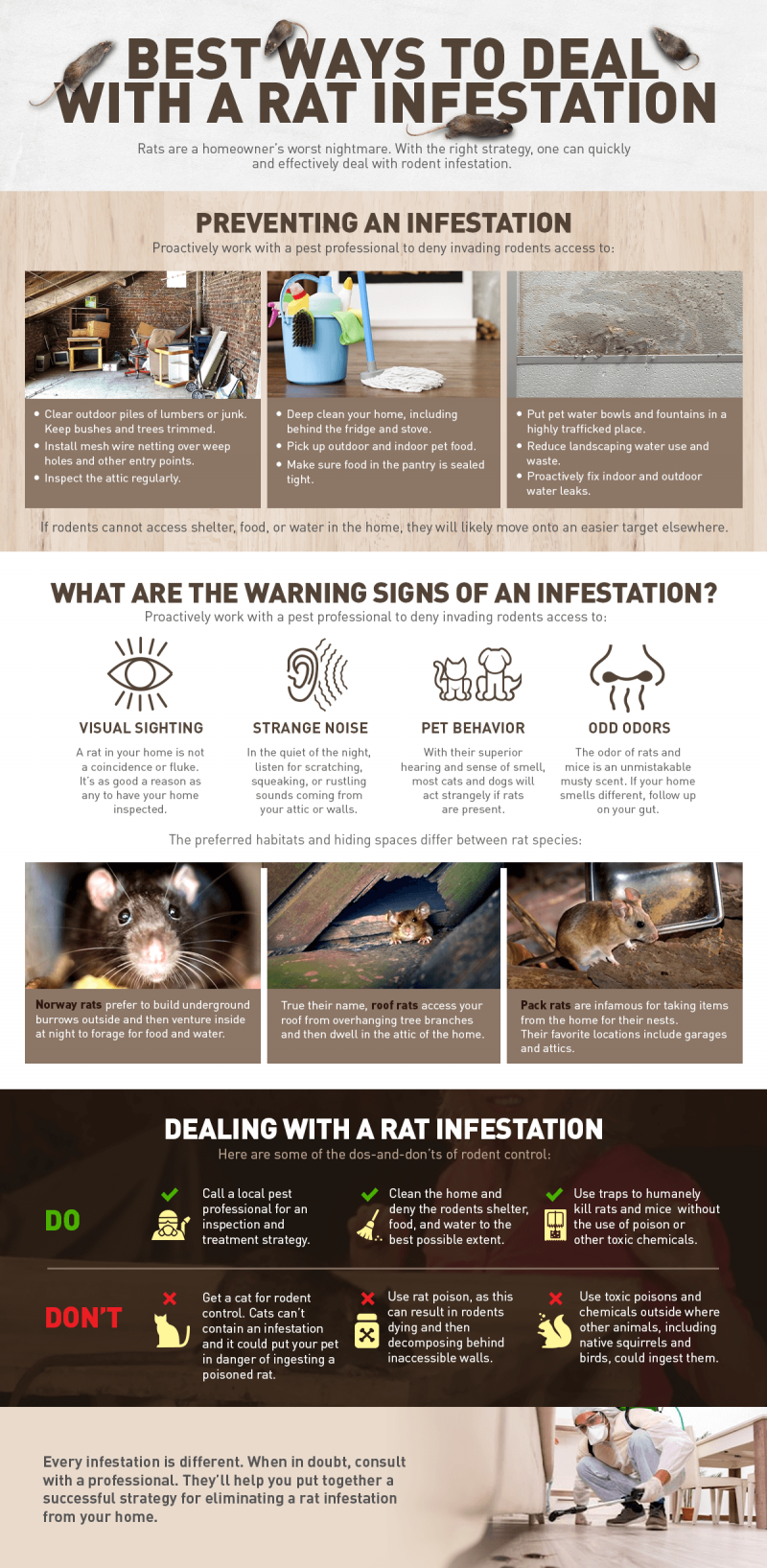What To Do About a Rate Infestation

The worst houseguests you could ever have may not be human beings but rodents, particularly rats. Not only do rats eat your food and keep you up at night with their noise, they can also make a noxious mess of your home, expose your family to disease, and potentially cause serious property damage.
There is hope, however. If you already have rats, you can take steps, either alone or with the help of professional pest control, to evict your unwanted houseguests. If you do not already have rats, there are also things you can do to prevent them from moving in.
What Species of Rats Pose the Biggest Problems?
There are many different species of rats that live in North America. The type of rats you see depends somewhat on where you live. However, certain species of rats tend to show up uninvited more often than others. Each has its own preferences as to where it wants to hide.
- Roof rats typically dwell in the attic of your home, which they access from overhanging tree branches
- Pack rats may also be found in the attic or in the garage but venture out to swipe home items for their nests
- Norway rats forage indoors at night for food and water then return outside to their underground burrows
What Are the Dos and Don'ts of Rodent Control?
Not every way of dealing with unwanted rodents is a good way. Some can potentially damage the environment or cause bigger problems inside your homes. Here are the right and wrong ways to deal with rat infestation.
- Professional pest control
Because of their resourcefulness and opportunism, an infestation of rats can get out of control even before you are aware of it. A roof rats pest control exterminator can identify the scope of the problem with an inspection and work with you to devise a strategy for treatment that includes both removal and decontamination.
- Poison versus traps
Do not use rat poison, and especially do not use poisons or toxic chemicals outside where other animals could ingest them. Even inside the house, a poisoned rat could die inside your walls, and its decomposing body could create a terrible stench. Instead, set traps that kill the rats humanely. Keep these out of areas where children and pets frequent.
- Cats
Cats have a reputation as great hunters of rodents. However, rats are prodigious breeders, and a single cat will not be up to the task of controlling them. Therefore, you can have a cat if you have rats, but you should not get a cat for purposes of rodent control. This could put the cat in danger of contracting diseases from the rats or eating one that has been poisoned.
- Cleaning
One of the best ways to keep rats out of your home is by keeping it clean and performing regular maintenance to get rid of clutter and repair any leaks. In this way, you deny the rat what it needs to survive: shelter, water, and food.
Odd odors, strange sounds, and unusual behavior by cats and dogs are all signs that you may have rats as houseguests. Quick, decisive action on your part may send them packing, but you often need backup from an exterminator to deal with the problem completely.
More to Read:
Previous Posts:




